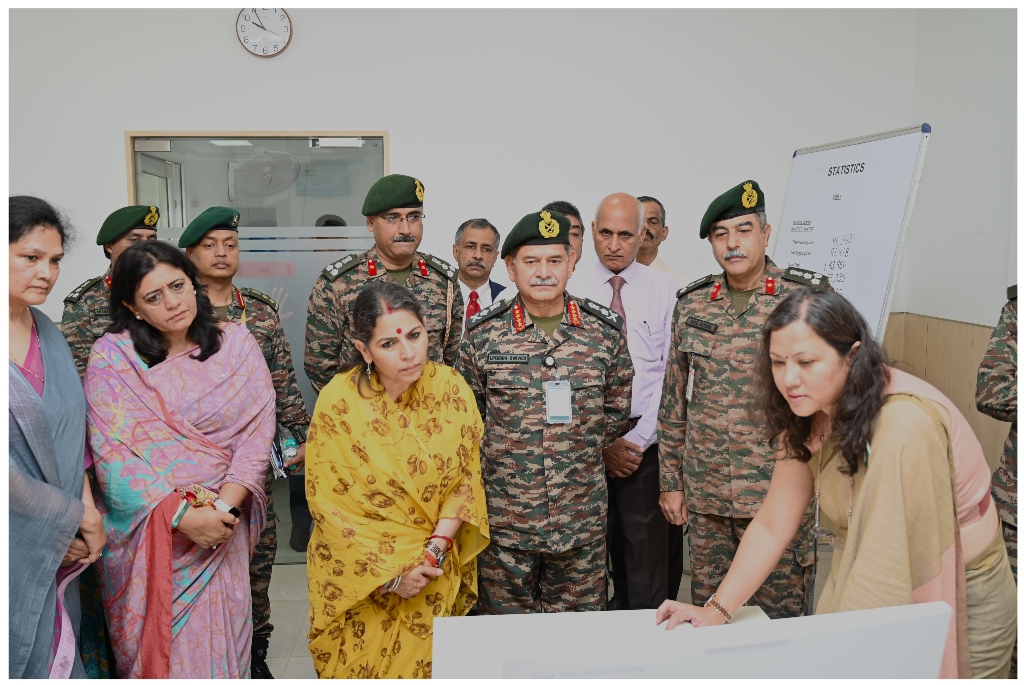India Develops Climate-Resilient, High-Yielding, and Biofortified Crops: A Decade of Progress.
New Delhi:
A spokesperson of central government stated that between 2014 and 2024, the National Agricultural Research System (NARS), including Indian Council of Agricultural Research (ICAR) institutes and State/Central Agricultural Universities (CAU/SAU), has made significant strides in the development of high-yielding, climate-resilient, and biofortified crops. During this period, a total of 2,900 improved field crop varieties and hybrids were introduced, addressing various needs in crop resilience, productivity, and nutritional enhancement.
He said, the range of these new varieties includes 1,380 cereal crops, 412 oilseeds, 437 pulses, 376 fibre crops, 178 forage crops, 88 sugarcane varieties, and 29 other types of crops. A remarkable 2,661 of these varieties (spanning cereals, oilseeds, pulses, fibre crops, forage crops, and sugarcane) are tolerant to various biotic and abiotic stresses, ensuring resilience against climate change and pests.
“Out of these, 537 varieties were specifically developed for extreme climate conditions, using advanced precision phenotyping tools. Additionally, 152 biofortified varieties have been released, including 14 rice, 53 wheat, 24 maize, 26 millets, 21 oilseeds, 9 pulses, and 5 grain amaranth varieties, which aim to improve nutritional outcomes for farmers and consumers alike” he remarked.
“In the horticulture sector, 819 varieties of crops were released and notified over the last decade, including 60 perennial spices, 49 seed spices, 71 potato and tropical tuber crops, 26 plantation crops, 123 fruit crops, 429 vegetable crops, 53 flowers and ornamental plants, and 8 medicinal and aromatic plants. Of these, 19 are biofortified varieties” he added.
“Efforts have been made to ensure that breeder and quality seeds of these improved varieties are produced in sufficient quantities to meet demand. These seeds will be distributed through various channels, including National Seed Corporation Ltd. (NSCL), State Seed Corporations, public and private sector agencies, Farmer Producer Organizations (FPOs), and other stakeholders. This initiative is aimed at accelerating seed multiplication and ensuring fast availability of seeds to farmers” he said.
“The government has launched the Seed Village Programme as part of the Sub-Mission on Seed & Planting Material under the National Food Security & Nutrition Mission. This scheme seeks to make high-yielding, biofortified, and climate-resilient seeds available to farmers at the village level. The financial assistance provided under this program covers 50% of the seed cost for cereals and 60% for oilseeds, fodder, and green manure crops for one acre per farmer” he asserted.
“Additionally, the National Mission on Edible Oils – Oilseeds (NMEO-OS) has been approved to enhance domestic oilseed production and achieve self-reliance in edible oils from 2024-2025 to 2030-31. The scheme offers funding support for various activities, including breeder seed purchase, seed distribution, training, and post-harvest infrastructure, with a focus on enhancing oilseed production capabilities in India” he said.
“These efforts, led by ICAR and supported by various agricultural initiatives, are expected to significantly boost food security, enhance farmer incomes, and contribute to India’s agricultural sustainability and self-reliance in the coming years” he added.



